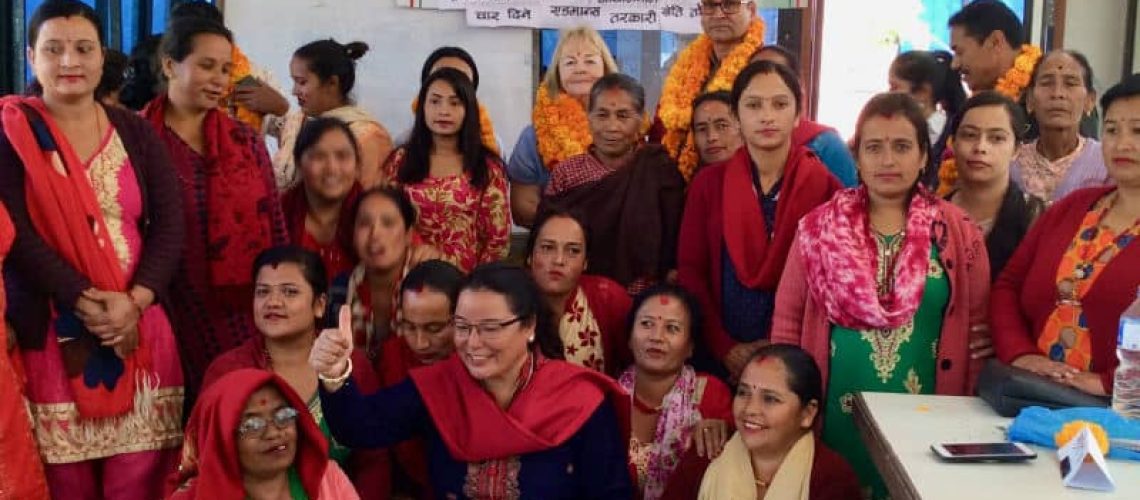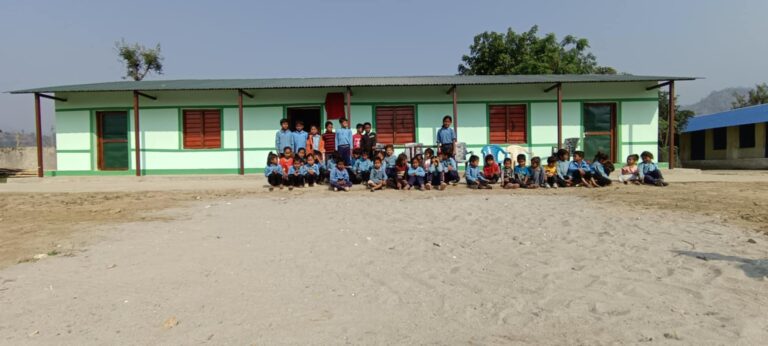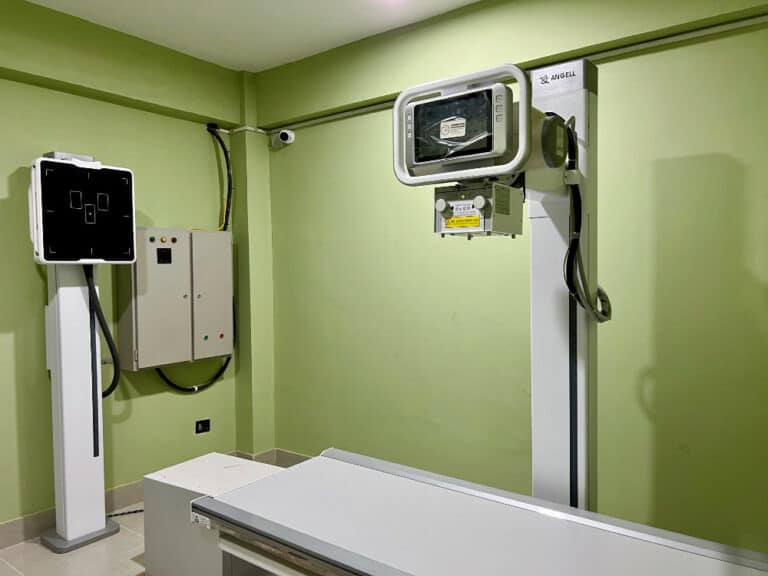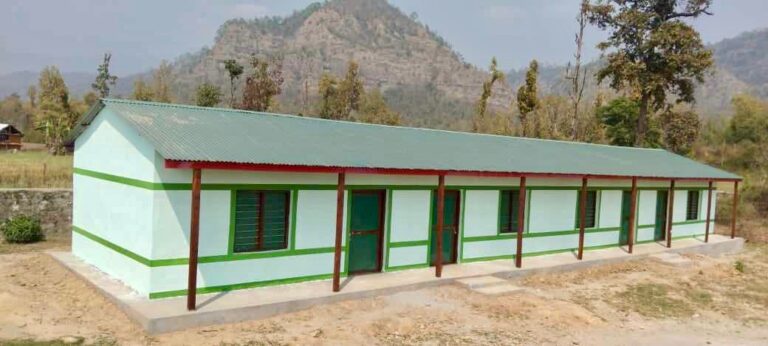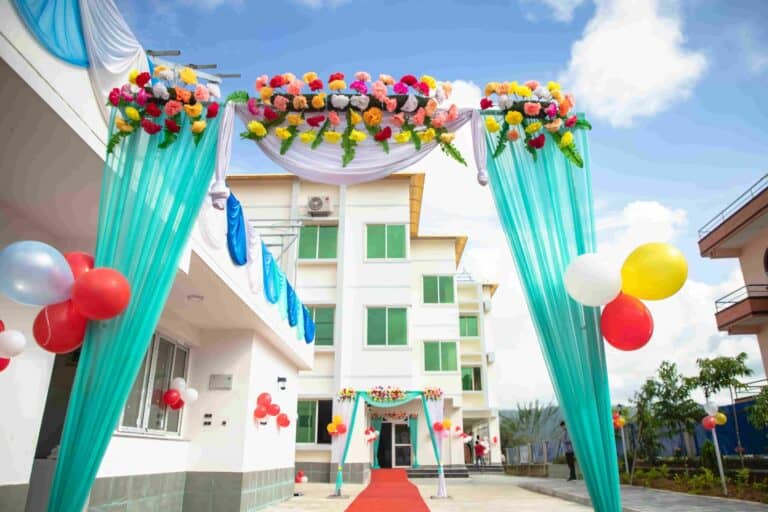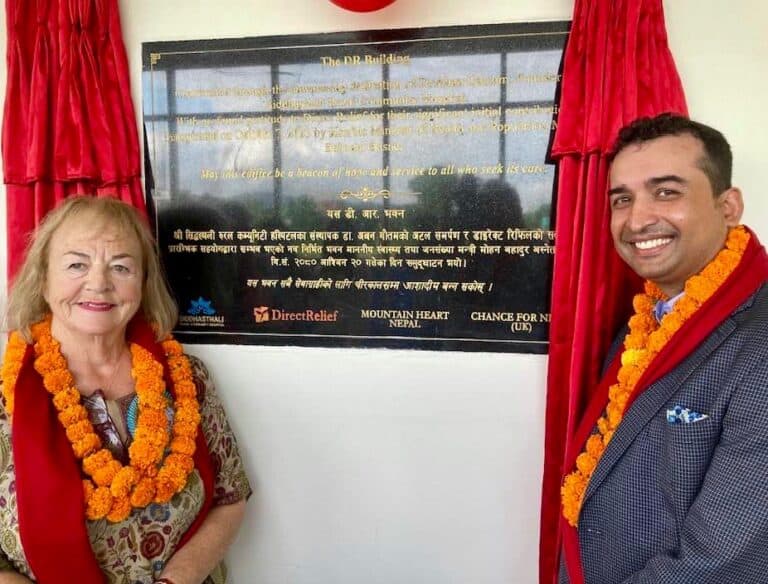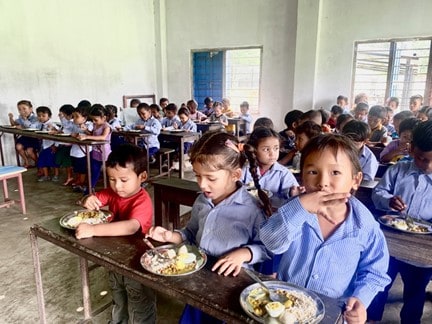During my annual visit to Nepal and our projects, I spent a day with WCS. I was accompanied by Bimala, a member of the Shenpen team, (one of our main partners on the ground) who was also my translator. The skills training took place on the outskirts of the Kathmandu Valley about an hour from the city. Our visit was on Day 3, of a four-day vegetable skills training, the topic was how to make organic fertiliser and pesticide.
There were 28 trainees taking advanced training. These women had previously taken part in the four-day elementary vegetable farming. We were warmly welcomed, by the two trainers and introduced the trainees. Whilst the theory part of the exercise was explained to the trainees, Bimala and I went to visit four of the women’s vegetable plots. The loans these women had taken on varied from 50.000Nrs (£350) to 1 and a half lhak – £10,500). Each loan has to be paid back after one year at 2% interest.
WCS has 18,000 women on their books who each have to pay 100 rupees pcm as a means of saving. WCS pays them 8% interest on their investment, thus encouraging a way to save. Of the 18,000 women, 70% go on to request a loan. All four of the women I met had paid their loan back within the time frame of a year…..impressive! Some had taken on a further loan to increase their plot of land or to buy a cow.
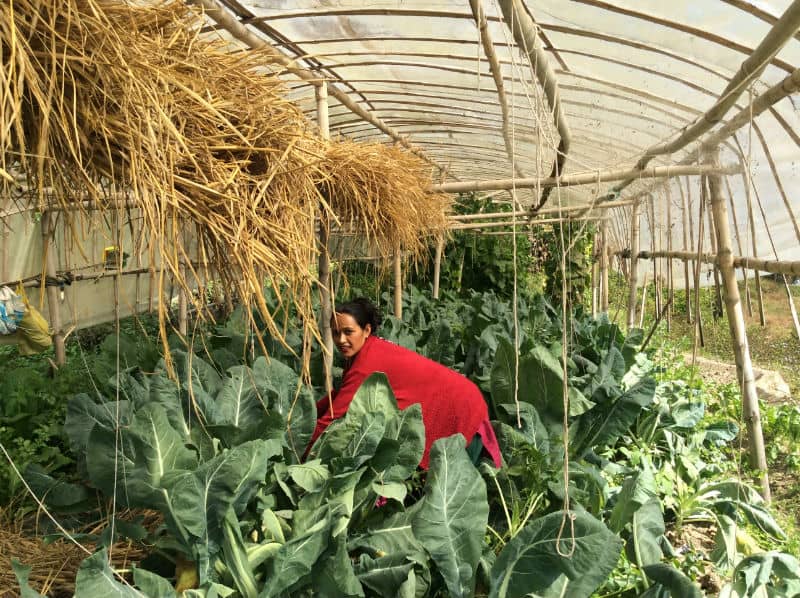
One of the ladies, Laxmi, aged 34, married with two children, a son aged 19 who is reading civil engineering and a daughter aged 14 in Grade 8. She has 6 ropani of land, equivalent to 3,000 square metres. She grows tomatoes, sweet corn, potatoes, spinach and the fruit Guava which she took from her tree and cut up to give us, nectar! She has one cow which produces 10 litres of milk a day which she also sells at the market. She makes a profit between 25,000Nrs and 30,000Nrs pcm. She is very proud and rightly so of her achievement. She is paying for her children’s education, and she and her husband have built their own house. The road, then the path to their house was barely accessible, high in the hills, scenically beautiful.
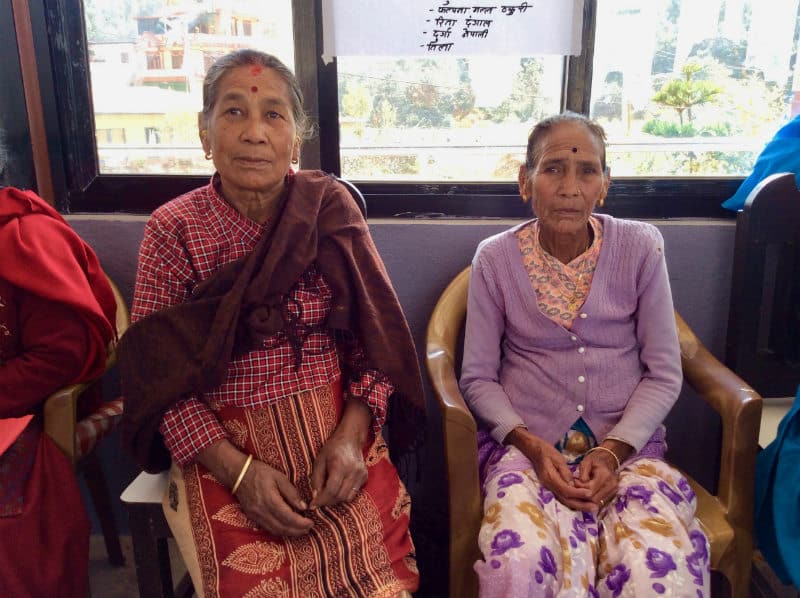
There were two elderly ladies on the training, aged 65 and 68, with no husband, who have also taken on a plot of land to grow potatoes, one of the most profitable vegetables along with cauliflower to sell at market. So, age is no barrier.
We then went back to the training and watched the trainees put into practice the theory they had learnt in the morning session. This consisted of making organic fertiliser. First, a large plastic drum in which they put cow dung, cow pee, ghee, curd, milk. Everything from the cow. Then they added chopped bananas including skin, apples and sugar. The bananas, apples and sugar help the process of bacteria and fermentation. This is then all stirred together in a large vat and left for about 21 days depending on the weather. It is then ready for use either as an insecticide, as the bugs detest the smell of the curd, and/or as a fertiliser.
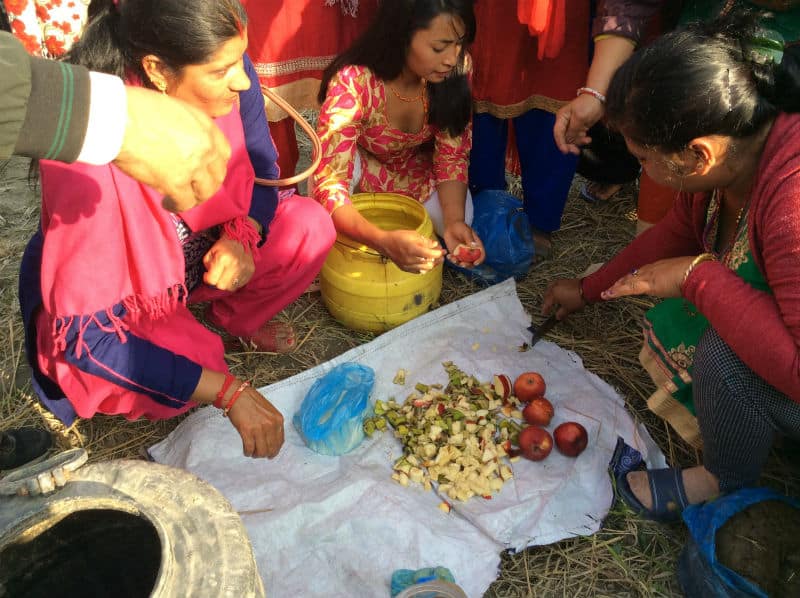
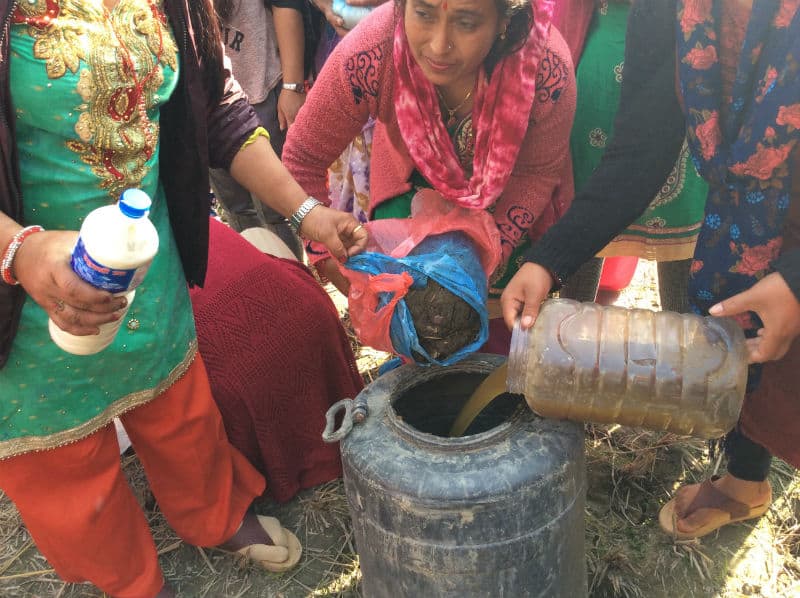
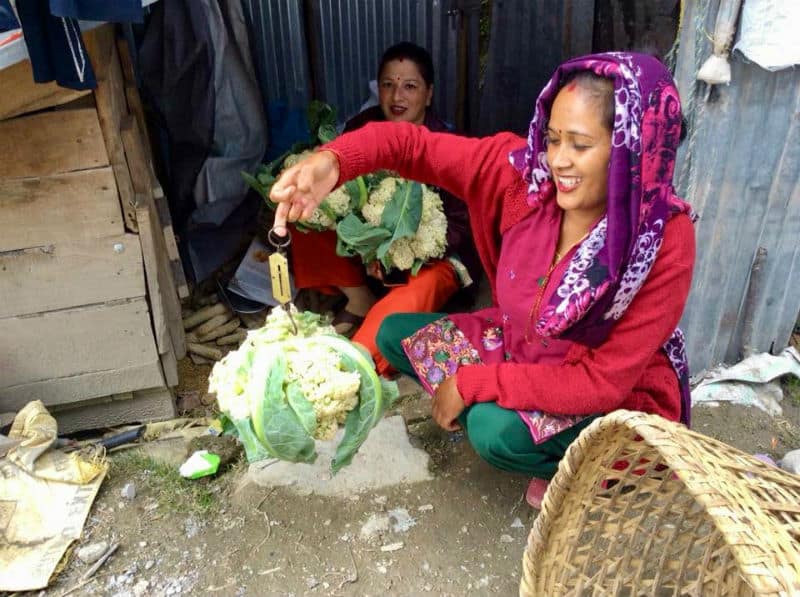
All the women were keen to learn and it was a most enjoyable day.
CHANCE funds 4/5 such training a year at a cost of around £4,000.
One lady let me buy 3 large cauliflowers weighing between 2 and 3 kgs each. She was so proud of her yield. Cauliflowers give a good yield and fetch good prices at market.

